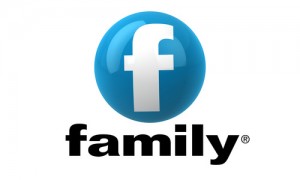
GATINEAU – On January 19, 2021, WildBrain Television, which owns kids and family-focused specialty services aimed at children filed an application with the CRTC against Cogeco Cable, claiming the BDU did not follow the principles of the TV Wholesale Code and the standstill obligations which forbids the discontinuation of service carriage during negotiations.
However, an intervention filed in support of Wildbrain’s complaint explores a deeper issue: The code is broken because large distributors like Cogeco hold too much power over smaller broadcasters like Wildbrain, which owns Family Channel, Family CHRGD, Family Junior and Telemagino.
Wildbrain’s complaint is a central problem for the Independent Broadcast Group (IBG), whose members include APTN, BBC Kids, Ethnic Channels Group, Hollywood Suite, OutTV Network, Stingray, Super Channel, TV5 Quebec, Channel Zero and Zoomer Media, who are confronted with this power imbalance daily.
“As is evident from the application, this results in independent BDUs pursuing their own interests by advantaging these large media companies and disadvantaging independent broadcasters, which also seek carriage on BDU platforms,” the IBG intervention reads.
“Between 2015 and 2019 the total number of BDU subscribers has declined by approximately 6.5%. The total revenue for independent discretionary services has also declined — but at a much more rapid pace — by 14.5%. In comparison, the total revenue for ‘VI’ discretionary services (i.e. those that are owned by or affiliated with a BDU) actually rose by 4.1%.” – IBG
To make its point, IBG commissioned and submitted a study which demonstrates “between 2015 and 2019 the total number of BDU subscribers has declined by approximately 6.5%. The total revenue for independent discretionary services has also declined — but at a much more rapid pace — by 14.5%. In comparison, the total revenue for ‘VI’ discretionary services (i.e. those that are owned by or affiliated with a BDU) actually rose by 4.1%.
“Based on the statistics set out above and in the attached study, the Wholesale Code is not having the intended effect.”
Cogeco not only claims innocence, it also says it “wishes to register its concern that Wildbrain’s Application constitutes a glaring abuse of the Commission’s process,” its response reads.
“Wildbrain’s Application relies on a faulty interpretation of the Wholesale Code in an attempt to impose on Cogeco the obligation to continue negotiations for the continued carriage of the Services, despite Cogeco’s clear intention to terminate the distribution of the Services,” it goes on.
“The Services’ significant content duplication on third party platforms contributed to this state of affairs.” – Cogeco
“The Services suffered from low viewership and client engagement, as evidenced by internal and external viewership data. Among other factors, the Services’ significant content duplication on third party platforms contributed to this state of affairs,” Cogeco concluded.
Telus and Québecor filed interventions in support of Cogeco.
CMPA and Blue Ant supported WildBrain.
“At issue in this dispute is a loss of access to a key broadcasting distribution undertaking (BDU) platform by services that contribute to Canadian production in children’s and family programming. Such a loss would result in a vicious cycle where there would be fewer Canadians being able to access the family services, decreased revenues for the family services, and less production of Canadian children’s and family programs,” CMPA’s submission read.
This CRTC Wholesale Code was put in place in 2015 to try to allow non-affiliated discretionary services the chance to get a better bargaining position faced with large, Vertically Integrated (VI) companies. While Cogeco is not vertically integrated, Wildbrain says Cogeco is favouring channels from other VI companies.



